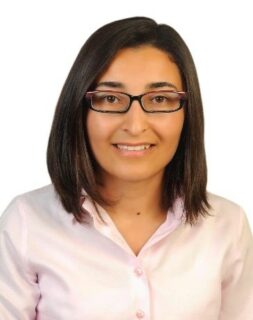Postdoktorandin aus dem Department Werkstoffwissenschaften forscht an der Universität Manchester
Im Rahmen der „Zielvereinbarungen zur Erhöhung des Frauenanteils in der Wissenschaft zwischen der Universitätsleitung und der Technischen Fakultät (2018-2022)“ stehen Stipendienmittel für Nachwuchswissenschaftlerinnen zur Durchführung von internationalen Forschungsaufenthalten zur Verfügung (Reisestipendium, International Visiting Scholarship). Ein Blick auf die Webseite der Frauenbeauftragten (https://www.tf.fau.de/fakultaet/gremien/frauenbeauftragte/) lohnt sich, um alle relevanten Informationen über die vielfältigen Stipendien- und Headhuntingmittel für Nachwuchswissenschaftlerinnen zu erhalten. Lesen Sie hier ihren Bericht:
Für einen mehrwöchigen Forschungsaufenthalt an der Universität Manchester hat Frau Dr.-Ing. Selda Özkan ein “International Visiting Scholarship” erhalten:
“From mid-January to early February 2019, I worked as a visiting researcher in Prof. Xiaorong Zhou`s group at the School of Materials/University of Manchester (https://www.research.manchester.ac.uk/portal/xiaorong.zhou.html).
In 2013, I joined the group of Prof. Patrik Schmuki at the University of Erlangen-Nürnberg as a doctoral candidate. I received my Ph.D. degree in 2017 and since then I am a postdoctoral researcher in his group. Currently, I conduct research on the synthesis of anodic TiO2 nanostructures and functionalization of the nanostructured layers for electrochemical, photoelectrochemical and photocatalytic energy conversion. My motivation for the research stay was to gain insight into a different research environment while learning new methods in electrochemistry. The corrosion science and engineering group at the University of Manchester accommodates well-known, respected scientists in the field of anodic oxidation. This opportunity has not only broadened my scientific perspective and introduced me to other aspects of this research field, but is also an important experience that will help me achieve my career goals as a scientist.
In the last decade, Prof. Schmuki`s group collaborated with the corrosion group at the University of Manchester on various projects in the field of nanostructured oxide layer formation by electrochemical anodization. During my research stay, I focused particularly on plasma electrolytic oxidation (PEO) of titanium and the characterization of the oxide layers. PEO method leads to the formation of crystalline porous oxide layers different from the conventional anodization technique. Moreover, during the anodization process, ionic species incorporate into the oxide layer and significantly modifies the physical, chemical and electrical properties. The as-formed crystalline porous layers can find wider application in the fields of electrochemical, photoelectrochemical and photocatalytic energy conversion. In this work, I perform research on the functionalization of PEO layers for photocatalytic hydrogen generation.
The research visit was a highly valuable experience and an important step on my way of becoming a successful woman in science. I would like to thank the women`s representatives for the international visiting scholarship.”
